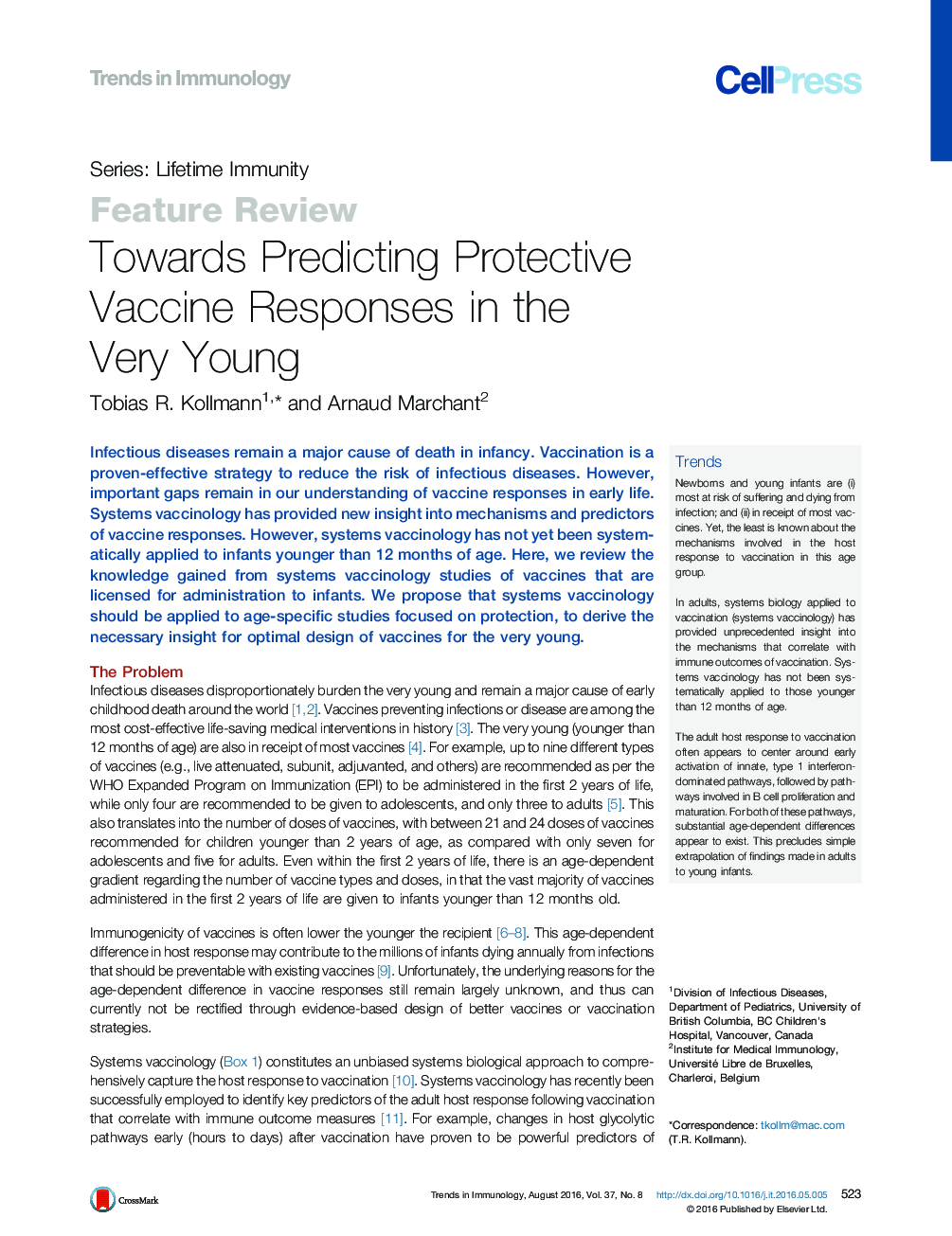| Article ID | Journal | Published Year | Pages | File Type |
|---|---|---|---|---|
| 4359651 | Trends in Immunology | 2016 | 12 Pages |
Infectious diseases remain a major cause of death in infancy. Vaccination is a proven-effective strategy to reduce the risk of infectious diseases. However, important gaps remain in our understanding of vaccine responses in early life. Systems vaccinology has provided new insight into mechanisms and predictors of vaccine responses. However, systems vaccinology has not yet been systematically applied to infants younger than 12 months of age. Here, we review the knowledge gained from systems vaccinology studies of vaccines that are licensed for administration to infants. We propose that systems vaccinology should be applied to age-specific studies focused on protection, to derive the necessary insight for optimal design of vaccines for the very young.
TrendsNewborns and young infants are (i) most at risk of suffering and dying from infection; and (ii) in receipt of most vaccines. Yet, the least is known about the mechanisms involved in the host response to vaccination in this age group.In adults, systems biology applied to vaccination (systems vaccinology) has provided unprecedented insight into the mechanisms that correlate with immune outcomes of vaccination. Systems vaccinology has not been systematically applied to those younger than 12 months of age.The adult host response to vaccination often appears to center around early activation of innate, type 1 interferon-dominated pathways, followed by pathways involved in B cell proliferation and maturation. For both of these pathways, substantial age-dependent differences appear to exist. This precludes simple extrapolation of findings made in adults to young infants.
